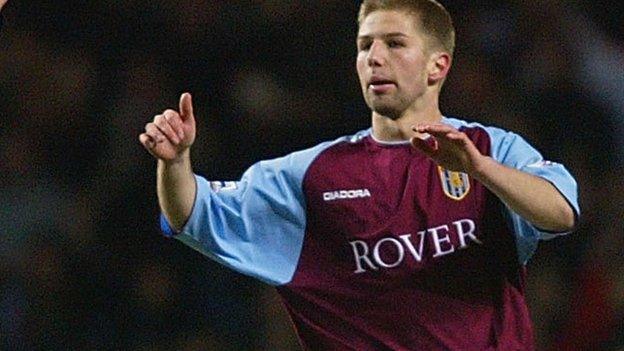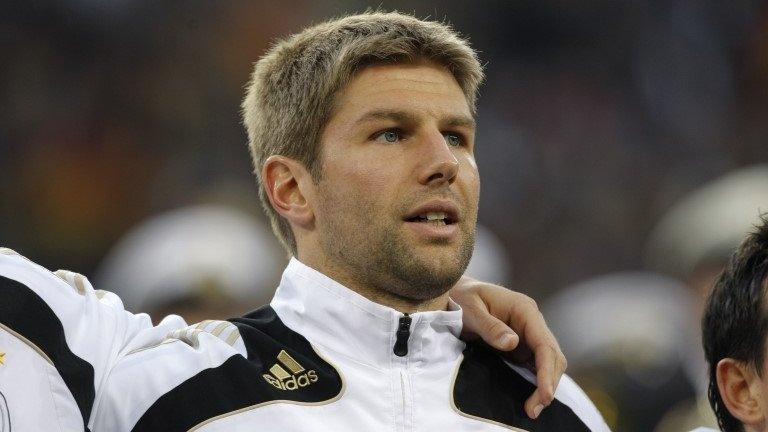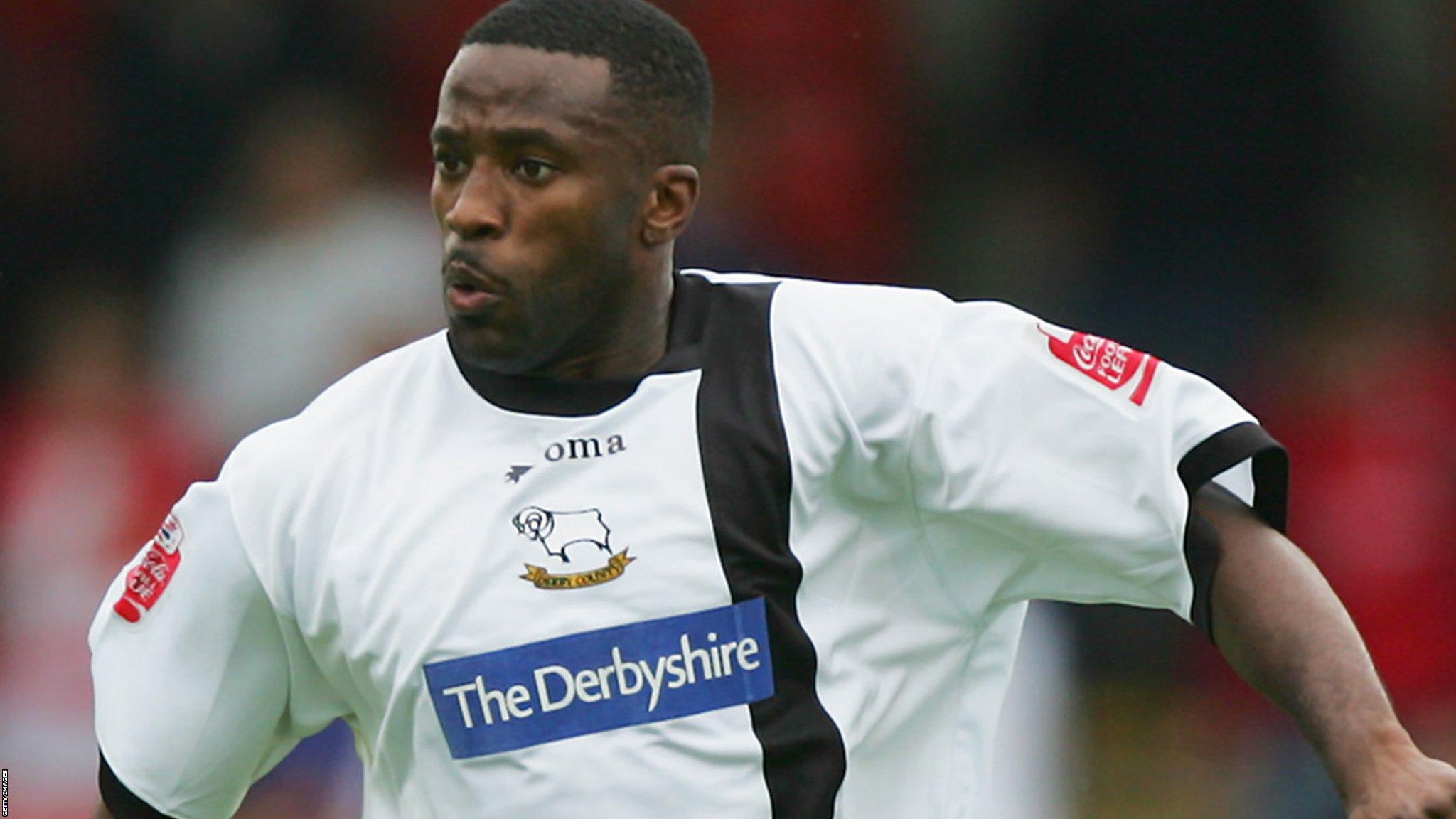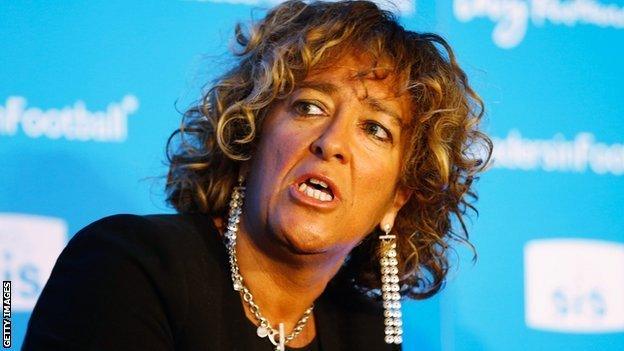John Amaechi: Football 'toxic' for gay people and minorities
- Published
Culture must change - Amaechi
Former Aston Villa midfielder Thomas Hitzlsperger is the highest-profile footballer to reveal publicly he is gay - but retired basketball star John Amaechi doubts others will follow.
Amaechi, the first NBA player to come out, believes football's "toxic" culture is to blame, and must change. He tells BBC Sport why.
Coming out is better than being in the closet. Being authentic is better than being inauthentic. So I think it's good for Thomas Hitzlsperger to have come out. I'm sure his life will be considerably better as time moves forward.
It isn't a big deal for an awful lot of people, but within sport there is still a problem. The real problem, especially with football, is that it has never evaluated itself properly. The sport has never understood just how toxic it is.
Football is toxic and not just for gay people - it's toxic for Asians who want to play the game, it's toxic for women who want to be executives, it's toxic for black people who want to do anything but play. It's toxic in many different ways, but football doesn't see itself like that.
It sees itself as this amazing, wonderful, bold and progressive organisation. As an analogy, it is the fat bloke who looks at himself in the mirror and beaming back at him is an Adonis. It's a self-image that bears no resemblance on reality.
Footballers coming out at the highest level will happen only as the product of a cultural change within the game. It will not be the precursor to cultural change in football. If you want to see people being who they are, coming out and playing at their very best because they're able to be who they are, then the culture of football must change first.
That can be done if a remarkably small number of people who hold a remarkable amount of power can evolve.
Most companies have made the transition already. They understand that issues of inclusion are not about being nice, window dressing, PR and phrases such as Kick It Out.
Football is the Saatchi & Saatchi of sports organisations. It's really good at advertising campaigns and colourful posters. That's part of change, but the fundamentals are a bit more rigorous, functional, pragmatic and boring. Football is not doing those bits.
I've worked with multinational organisations that have made fundamental policy changes thorough education at every level, with senior executives who mean the change they're talking about. It's amazing that within two or three years, the organisation starts to shift radically. It attracts the very best people regardless of demographic.
Football's decision to stay in the dark ages - in terms of women in boardrooms, black people in management or executive positions and gay people anywhere - is just a statement that they don't want the very best people.
They don't want to change the status quo because they know that means new people, more women executives, more Asian players and executives, more difference. Football and sport are toxic to difference.

Football thinks bigotry exists in little compartments; that the causes are all separate monsters they have to fight one at a time. They've opted to fight the racism monster first and then they'll move on to the next one.
But bigotry is a Hydra. It has many heads. You can go swiping at those heads as much as you want - they will just multiply. You have to kill the ignorance and myths at the centre of that monster in order to destroy it.
Generally, it just need 10-15% of an organisation to lead well and the rest will follow. Fans will follow if properly led.
Coming out is challenging for anybody. Coming out to yourself is a challenge for many. Coming out to families and people who love you is very difficult. When you add on top of that the challenge of coming out to complete strangers - who are then going to go on Twitter and call you the 'F' word - you suddenly realise that even in 2014, it is still a challenging thing.
I give the same advice to all people who are considering coming out. You should come out if it's safe. If you can come out and you know that your team-mates are going to be supportive, if you know your club will be supportive, that your management will be supportive and your family will be supportive, then do it.
Being out is better than being in. Being yourself makes everything a bit more rosy.
John Amaechi was talking to BBC Sport's David Ornstein
- Published8 January 2014

- Published8 January 2014

- Published7 January 2014

- Published16 December 2013

- Published6 December 2013

- Published7 June 2019
